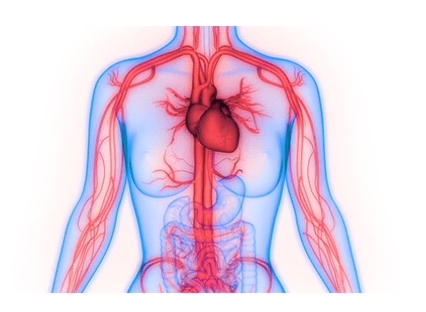
Do Not ignore your High Blood Pressure…Taking action can save your life!

About half of all individuals in the United States have hypertension, or high blood pressure, although many are unaware of their condition. You generally don't have any symptoms when you have high blood pressure. You appear to be in good health, yet your health is in dire danger.
PACE' s skilled doctors can help you comprehend your blood pressure level and, if required, get your hypertension under control.
In this article, we'll look at why it's vital to manage high blood pressure even if you're feeling OK, as well as some of the dangers that come with this common but deadly disease. Your blood pressure is made up of two numbers, one of which is “over” the other. Normal blood pressure, for example, is 120 or less over 80 or less.
Your systolic blood pressure is the amount of force that your heart exerts on the walls of your arteries when it beats. Your diastolic blood pressure is the amount of force on the walls of your arteries between beats, and it's the second number.
Because your heart is a pump, blood pushes harder against your arteries with each pump, the top number is always higher than the bottom. Primary hypertension has no known origin and develops slowly over a long period of time. Something else, such as sleep apnea, certain medicines, or renal illness, might induce secondary hypertension.
High blood pressure is more probable if you have certain risk factors. Your risk increases as you become older, and those of African descent appear to be at higher risk. Sedentary or overweight people are more likely to have high blood pressure.
It's also crucial to watch what you eat. People who consume too much salt or too little potassium are at a higher risk. Excessive alcohol consumption has also been linked to hypertension. High blood pressure, if left untreated, can lead to significant complications such as a heart attack or stroke. When your blood arteries are compromised by hypertension, you may get aneurysms, heart failure, and renal disease.
Metabolic syndrome, a complicated set of diseases that can lead to diabetes, heart disease, or stroke, is another health issue. Memory problems, as well as dementia, can occur as a result of hypertension. Making a few lifestyle changes is one of the first and most significant actions you can take to decrease your blood pressure. Quit smoking if you're a smoker. Examine your food to ensure that it is nutrient-dense, diverse, and low in salt.
Consult your doctor about getting some exercise. You may start with something as basic as going for a stroll once or twice a week. If you're overweight, your goal should be to get to a healthy weight.
To assist decrease your blood pressure, minimize fluid accumulation, and make your blood vessels more flexible, you may require medication. It's possible that you'll need to keep track of your blood pressure at home over time.
We are just a call or click away. To learn more, book an appointment online or over the phone with PeachState Advanced Cardiac & Endovascular. We have several locations in Georgia: Newnan, Atlanta, & Griffin.
You Might Also Enjoy...


Feeling Faint

Should I be worried about my numb feet?

Can leg cramps be a sign of something serious?

Meet Dr. Odiete - PACE Cardiovascular Specilaist


